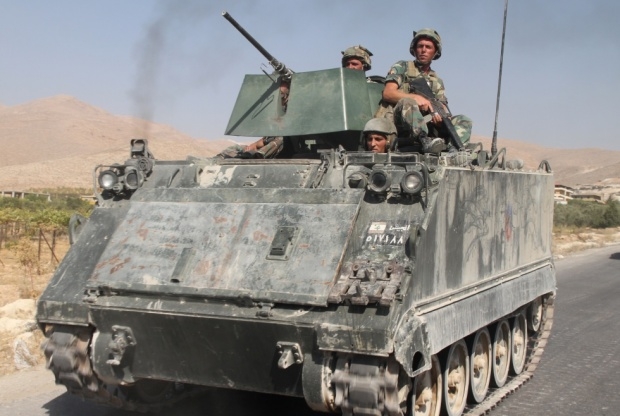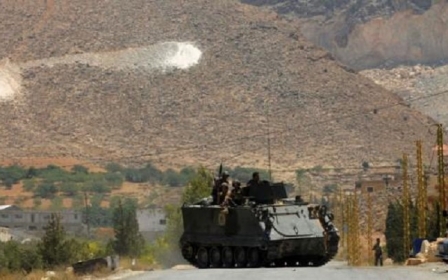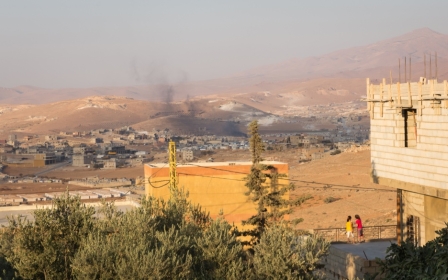Lebanon’s defeat on the war on 'terrorism': the case of Arsal
Published date: Vendredi 13 février 2015 - 01:00
|
Last update: 9 années 9 mois ago
'Racism has become institutionalised and its consequent violence is legitimised. It has become the policy, the politics of a nation.'

Arsal, a Lebanese village that borders Syria, has been a geo-strategic hub for the notorious Al-Qaeda-affiliated group, Al-Nusra Front. At the same time, it has been a refuge for thousands of Syrians fleeing the violence on the other side of the border. Consequently, the village became overwhelmed with refugees under tents that covered both, Syrian civilians and militants. Such tension, catalysed by a racist Lebanese political discourse and misgovernance, is a recipe for disaster.
After Lebanese security forces arrested an al-Nusra Front commander in early August, the long-awaited and inevitable battle of Arsal started. In less than a week, the battle ended pre-maturely with a fragile truce that technically handed the Lebanese village back to the Lebanese Army. However, a dozen Lebanese soldiers were captured by al-Nusra.
Since then, tension remains high, as the families of the captured soldiers lose patience with a weak and passive Lebanese government incapable - and possibly unwilling - to negotiate their release.
Public anger, however, has been diverted through a traditional political manoeuvre: scapegoating. In such an environment, racism flourishes and Lebanese media outlets echo what the people want to hear: this crisis is not because of “us,” it is because of “them.” If this means anything, it means the Lebanese have yet to learn from their history, when they labelled their civil war “the war of others on our land.”
While the families of the captured soldiers bluntly and publicly blame the Lebanese government for the crisis, political discourse upheld by most Lebanese media outlets channelled collective dissent into racism with an aesthetic cover of nationalistic sentiments.
The process of using a dominating, racist discourse in Lebanon started long before the battle of Arsal. Banners fixed in Lebanese towns and municipalities ordered Syrians not to go out after dusk. Prominent media outlets fuelled dissent against the Syrians, while overshadowing the failure of the Lebanese political elite to respond to the crisis. Such practices and policies were the cultural and political pre-requisites to legitimise despicable, inhumane, and indiscriminate assaults on Syrians in Arsal and elsewhere.
For instance, OTV, a Lebanese TV channel owned by Christian leader Michel Aoun, blatantly reported their concern that the Syrian refugees are predominantly Sunnis and “terrorists.” Lebanese parliamentarian and Deputy General Manager of An-Nahar newspaper, Nayla Tueni, wrote an article, warning the Lebanese of the emergence of something like the “Palestinian ghost” in the recent Syrian refugee crisis; in reference to the Lebanese civil war, wherein Palestinian militias fought.
What justified such racism is patriotism and the unconditional support to the Lebanese Army. Even celebrities known to be progressive and secular, like Lebanese singer Tania Saleh, went as far as posting on social media that they are “under the boots” of the army; alongside other metaphors and poetry that romanticised the battle.
So, anti-Syrian discourse and the anti-terrorism discourse have become inter-changeable, if not unified. The threat coming from the Eastern borders has been blamed on Syrians as a whole, men and women, children and the elderly. The lack of unity and patriotism that the
Lebanese suffer from has been overcome by negating the failure of Syrians to unite and protect their land. The “Lebanese” identity, long-lost in sectarian division and civil wars, has been shallowly reinvented as a negation of the “Islamists” and the society that Lebanese believe to represent this regression: Syrian society.
On the eve of the battle of Arsal, a news anchor wearing the military uniform accentuated sentimental praise to the “guardians of the nation, …the heroes,” as they take part in an “existential battle” for the country. This rhetoric, however, has been paralleled by racist banter that interconnects the refugee crisis with the “existential threat” posed by al-Nusra and IS on Lebanon.
Despite the probable support that Hezbollah provided to the army in the battle of Arsal, the outcomes were somehow disappointing to many. The capture of soldiers and the process of negotiating with “terrorists” - even if it was indirect negotiations - seemed to demand even more scapegoating.
Last week, AFP reported that the Lebanese Army allegedly poured fuel on tents in Arsal and set them on fire, attacked Syrian children and women, beat the elderly, and arbitrarily detained Syrian men in a humiliating scene captured on camera. There have been frequent incidents of abuse and violence against Syrian refugees in Lebanon. What is peculiar about Arsal, is that the atrocities were systematically perpetrated by the army, rather than by racist gangs or individuals.
Alas, racism has become institutionalised and its consequent violence is legitimised. It has become the policy, the politics of a nation. Lebanese are now confronting anyone in Lebanon who is not Lebanese. The chance to revive a long-sought national identity comes at the expense of accountable governance, self-assessment, and admitting major responsibility in the crisis over the borders.
The Lebanese public refuse to admit that the Lebanese themselves have been pioneers in the rise of the groups that the country is now fighting against. Not only has the country provided a safe haven for the militants to train and organise, but it has also provided the necessary black market for war. Numerous Lebanese have joined al-Nusra and its affiliates, several Lebanese warlords have funded them, and some Lebanese war entrepreneurs have profited from them.
No matter how the military confrontation develops, we are currently losing the war. We are legitimising the Islamic State through our national fascism and increasing al-Nusra’s recruits. We are giving the Syrians in Lebanon no other option but to hold up arms against us. If we think the war against terrorism is only a military war, we are losing the battle already. Ask George Bush and Tony Blair…
- Ibrahim Halawi is a London-based researcher and a PhD candidate in Politics at Royal Holloway University of London. His research focuses on power dynamics and counter-revolution in the Arab World. He has published contributions on Political Islam in the context of the Arab Spring and the geopolitical challenges to secularisation in the Arab World. Also, he founded a secular student-run newspaper in Lebanon.
The views expressed in this article belong to the author and do not necessarily reflect the editorial policy of Middle East Eye.
Photo credit: Lebanese troops deploy in the eastern town of Arsal near the Syrian border (AFP)
Middle East Eye propose une couverture et une analyse indépendantes et incomparables du Moyen-Orient, de l’Afrique du Nord et d’autres régions du monde. Pour en savoir plus sur la reprise de ce contenu et les frais qui s’appliquent, veuillez remplir ce formulaire [en anglais]. Pour en savoir plus sur MEE, cliquez ici [en anglais].





